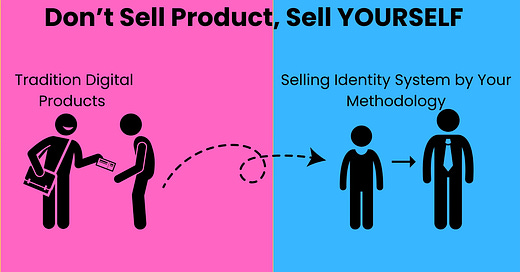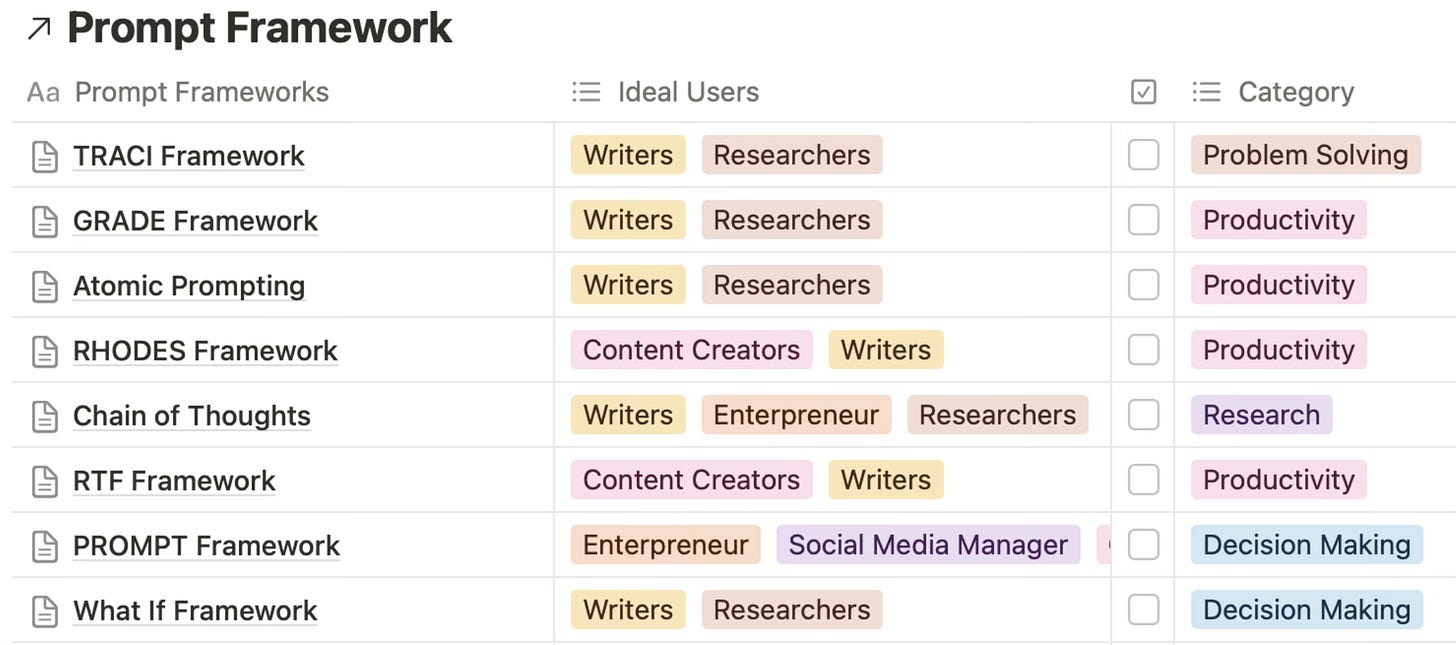You launch your digital product.
A template pack. A mini-course. A productivity system. Maybe a digital planner or consulting framework.
The price feels right. The landing page converts. But after the dopamine hit of that first sale...
Silence.
Not just from customers. From the market itself. Your "game-changing" digital product becomes another forgotten download in someone's cluttered folder.
Here's what hurts more: even products that do sell rarely create the transformation they promise. Buyers consume, then... nothing. No testimonials. No word-of-mouth. No repeat customers.
You're not selling products. You're selling digital shelf-decorations.
What you'll learn in the next 3 minutes:
Why 87.4% of digital products become forgotten downloads (and the psychological reason behind it)
The 2-framework system that transforms one-time buyers into raving evangelists
How to price for identity transformation instead of features (and why this 10x's your revenue)
The exact methodology I used to go from $60 templates to $12k+ operating systems
Why solopreneurs have an unfair advantage over corporations in the digital product game
The Brutal Reality of Digital Product Graveyards
A meta-analysis of 221 digital learning products revealed a median engagement rate of just 12.6%.
Translation? 87.4% of your buyers will download, glance, then ghost.
Meanwhile, some solopreneurs are building empires with simple digital products:
Ali Abdaal's productivity templates: $2M+ annual revenue
Tiago Forte's Second Brain system: $10M+ lifetime sales
The difference isn't product complexity. It's understanding what people actually buy.
Why Information Products Die Slow Deaths
We're drowning in digital noise:
92.8% of working-age users already consume online content weekly
37% discover products through short-form clips
Only 8% engage deeply with long-form content
Your competitors aren't other digital products. You're competing with infinite scroll, instant gratification, and the attention apocalypse.
Trying to win on "more features" is like opening a library in a theme park.
The market isn't starved for tools. It's starved for a way of thinking that feels transformative.
The Identity Economics of Digital Products
Here's what seven-figure solopreneurs understand:
People don't buy digital products. They buy becoming.
When I interviewed dozens of successful solo creators, one pattern emerged: every top seller leads with a named philosophy that customers can adopt as their identity.
I created my 48 Prompt Library, which helps you choose the right pick and play AI Prompt based on all these learnings and the type of activity.[Access here].
Here is a sneak peek of the same
Your buyers aren't collecting downloads. They're collecting worldviews.
Framework #1: APAG (The Digital Product Spine)
Structure every product, every email, every piece of content:
A - Attention: Twist the knife on their current reality. Don't just say "organization matters"—say "your productivity system isn't broken, your relationship with time is."
P - Perspective: Share the contrarian worldview that birthed your solution. This isn't features—it's philosophy. "Most people treat their brain like a dumping ground. I treat mine like a curator."
A - Advantage: Paint the identity shift, not just the outcome. Not "you'll be organized"—"you'll become the person who thinks in systems, not tasks."
G - Gamify: Build completion into the product itself. Progress trackers. Community checkpoints. Social proof mechanisms. Make using it feel like leveling up.
Why it works: Identity-Based Motivation research proves people persist when actions align with who they want to become. APAG embeds that identity shift into every touchpoint.
Framework #2: Unearth → Crystallize → Construct
Unearth: What personal breakthrough created your method? Your struggle isn't backstory—it's your unique angle. The mess that became your message.
Crystallize: Name your approach so customers can evangelize it. Not "Productivity Planner"—"The CEO Operating System." Not "Writing Templates"—"The Content Philosophy Framework."
Construct: Build transformation into the product architecture. Progressive difficulty. Milestone celebrations. Community integration. Price for the identity upgrade, not the download.
The Psychology Behind Digital Product Success
Successful digital products don't solve problems. They upgrade identities.
Think about it:
Notion templates don't just organize—they make you feel like a "systems thinker"
Writing frameworks don't just structure content—they make you feel like a "strategic creator"
Business templates don't just streamline processes—they make you feel like a "CEO"
The product is the vehicle. The identity is the destination.
Your Next Move (Skip the Perfectionism)
Identify your origin transformation. What shift in thinking changed everything for you? That's your product's philosophical foundation.
Name your methodology like a movement.
"The Minimalist Entrepreneur Method."
"The Deep Work Operating System."
"The Creator's Philosophy Framework."
Build identity reinforcement into product usage. Progress indicators. Community touchpoints. Success celebrations that feel like identity validation.
The Solopreneur's Advantage
Big companies sell features. Solopreneurs sell worldviews.
You have something corporations can't replicate: a personal transformation story that customers can see themselves in.
Your mess became your message. Your struggle became your solution. Your journey became their roadmap.
That's not just competitive advantage. That's category creation.
The Bottom Line
People don't buy digital products.
They buy who they'll become after using them.
Stop selling downloads. Start selling upgrades—to their thinking, their identity, their way of operating in the world.
The solopreneurs who understand this will dominate the next decade.
The ones who don't will keep wondering why their "valuable" products gather digital dust.
Grab a copy of my AI Writing Blueprint- [Access here]
Grab a copy of my 48 Prompt Framework Library- [Access here]







APAG and UCC are interesting :)